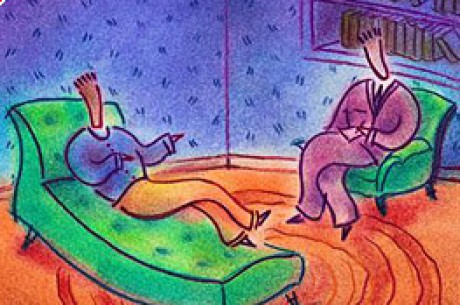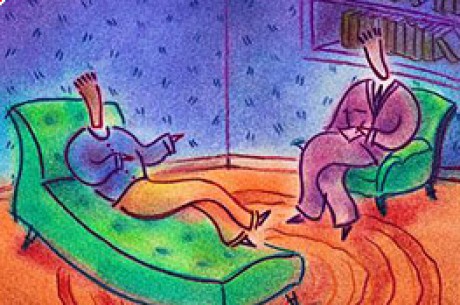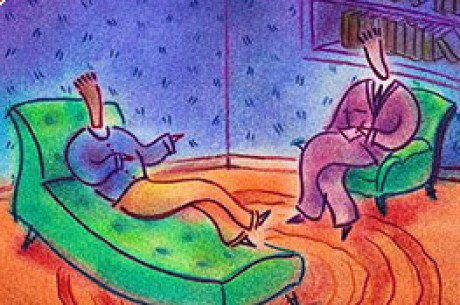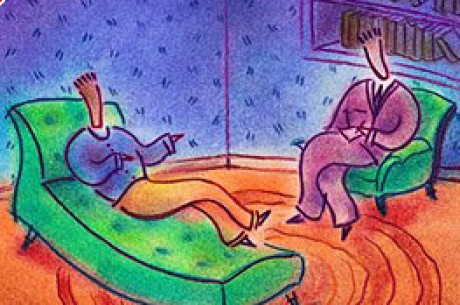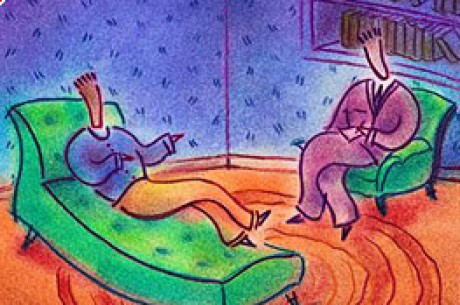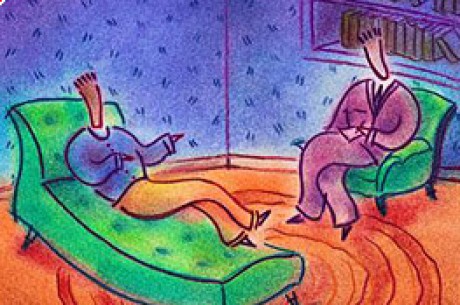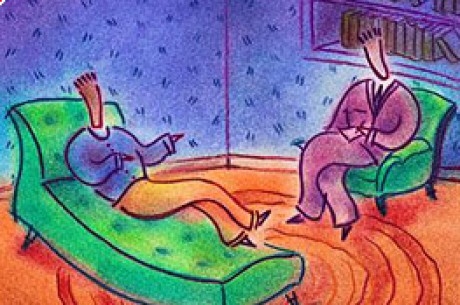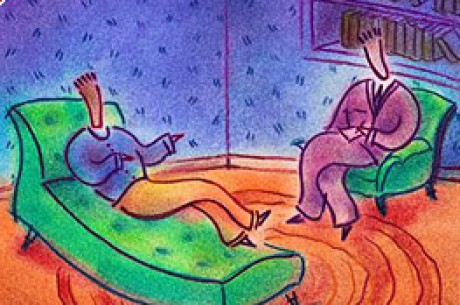The Poker Counselor's Corner (62)
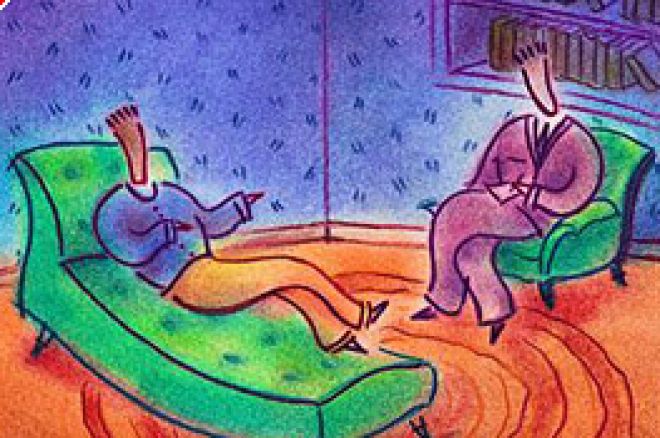
Dear Poker Counselor: I was chip leader with only two tables left in a huge multi-table tournament at Party Poker. With a raise and a re-raise in front of me pre-flop, I pushed it all-in with my pocket Aces. My chip lead was cut in half when I was beaten by some guy's pocket 8's that made trips on the Turn. Two hands later I was out when I flopped the nut straight, only to see an opponent turn his 2 pair into a full house on the River. I went from dreaming about a huge payday to wining only a few bucks. In your column you write about emotions and controlling them. The weird part was that I had no emotions at all when I lost. I just sat still at the computer in amazement. It was like I had no emotions. – Emailed by Bill P.
That "emotionless" state is probably better characterized as a true state of shock. In reality, it may be healthier to scream and swear than sit and stare in a seemingly "emotionless" state. Your expectations were deeply engrained into your mind as players dropped and your chips were high. Your mind had already begun celebrating and planning out what to do with the big money win. When that big payout was seemingly ripped from your pockets after two quick bad beats, your mind was simply too overwhelmed with the situation to process the emotional tidal wave that went with it. While you may think that you had no emotions, it may be more accurate to say that you had so many emotions that you could not move. You were actually paralyzed by the emotions. During this sort of sweeping disappointment, an empty feeling fills the psyche. A numbness overtakes us as a protection. Those emotions do not just dissipate into thin air, though. You will inevitably have to deal with the disgust, disappointment, disbelief, and anger that ignited when you took this untimely exit. If you don't work to get it out constructively, it will simply leak out in unhelpful ways at work, in your daily life, and in your future play. Think of it as a very serious and harmful case of tilt. To combat this, it is important that you work to get those emotions off of your plate. Take a bit of time to allow the steam to calm. Talk with your veteran poker buddies about your play and the results. Their reassurances and advice would be a benefit for you right now. Also, you'll have a negative impression of poker in your mind for some time due to the harshness of this loss. You'll have to learn to trust and enjoy poker once again. Reenter the game at a lower buy-in than your usual. Focus on your confidence and enjoyment level as you work to win some money. You have some work ahead of you to get yourself back into the appropriate mental state to be a formidable poker player.
Dear Poker Counselor: I am really liking the show called High Stakes Poker where the stars play real cash games. I have been playing in home No Limit tournaments for a while. It is interesting to see the thinking and style of the pros change when it is not a tournament. I am interested in starting some cash games, now. – Posted at an online forum by PokerPac
High Stakes Poker on GSN is indeed an excellent poker show. Too many poker amateurs fail to understand the opposing styles and psychology behind cash games versus tournament structures. Play is much different in a tournament where rising blinds force the action, the payout structures encourages chip accumulation, and players are willing to take lots of risks due to the reward at the top of the payout schedule. High stakes Poker is one of the first shows that gives us a real glimpse into the big cash games that involve poker's elite like Doyle and Greenstein with huge wads of cash. One thing that strikes many about that particular show is how effortlessly the pros comfortably toss out bets and bluffs that equate to the average person's annual salary (or more)! This underscores the vital importance of playing at an economic level that you are comfortable with. Imagine a man who only makes $30,000 per year risking his life's savings on one sitting at that table. Players like Daniel Negreanu would continually put pressure on the newcomer to force him off of almost any pot. They would recognize the fact that the "average Joe" was playing as scared money, too attached to the cash to risk it in the middle. The same concept holds very much true at any level. During my learning stages, I remember taking the steps from low-limits ($2/4 Limit) to much bigger investments ($4/8 and then $5/10). My play tightened up significantly with each step up, causing me to seep money from the bankroll until I reclaimed my confidence and comfort level. Don't allow this to occur to you. Start small and slow, and build your cash flow as you build your confidence. If you are doing the home game route, find friends who are willing to play the limits or No Limit buy-ins that you are comfortable with. After several sessions, you may indeed be prepared to sneak up to the next level. Although you may never reach the level you see on GSN when guys regularly toss out huge bricks of $100 bills, you may find yourself playing serious poker and enjoying the climb up the levels.
Keep those questions coming!! [email protected]
Ed Note: Start climbing levels by signing up at London Poker Club Join the club today.

